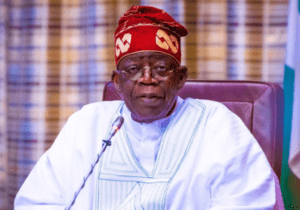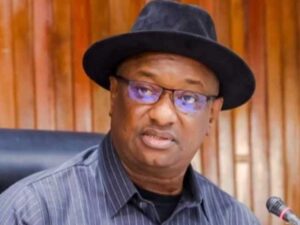


Defining policies of President Bola Ahmed Tinubu’s first year in office
By Kenechukwu Aguolu FCA, PMP, CBAP
As President Bola Ahmed Tinubu approaches the first anniversary of his administration, Nigerians reflect on the impact of his “Renewed Hope” agenda. While some citizens are optimistic about his capacity to bring about significant changes, others maintain a stance of indifference or skepticism. Notably, two major and contentious policies—namely, the removal of fuel subsidies and the floating of the naira—have defined his tenure so far.
The rationale behind the removal of fuel subsidy was that Nigeria could no longer sustain the financial burden of subsidising fuel. By ending the subsidy regime, the government aimed to free up funds for investment in critical sectors such as infrastructure, healthcare, and education. Fuel Subsidy removal led to an immediate sharp increase in fuel prices, which also led to a rise in the cost of living. Commuting expenses skyrocketed, making it hard for many workers to afford daily transportation. The higher fuel prices have also significantly contributed to food inflation, making necessities increasingly unaffordable for many Nigerians
Federal government employees received wage awards as a temporary relief measure. However, the promise of a new national minimum wage remains unfulfilled, adding to the financial stress of many households. State governments also provided wage awards at varying rates, but these have been insufficient to offset the increased cost of living. The delay in the provision of Compressed Natural Gas (CNG) buses, expected to alleviate transportation costs, has further compounded the problem.
As part of efforts to stabilise Nigeria’s economy, President Tinubu directed the Central Bank of Nigeria to float the naira, allowing market forces to determine its value. Though anticipated to cause short-term volatility, it is expected to lead to a more stable and realistic exchange rate in the long run. The floating of the naira has led to significant foreign exchange losses for many companies, particularly multinationals, which reported losses running into hundreds of millions of naira. The cost of doing business has increased, with higher prices for diesel, raw materials, machinery, and spare parts, creating a challenging environment for businesses of all sizes.
However, the Federal Government must be commended for clearing its foreign currency backlogs, which has boosted confidence among foreign investors, thereby enhancing Nigeria’s appeal as a global investment hub. Consequently, there has been an increase in both foreign direct investment and foreign portfolio investment. Also commendable are the palliative measures implemented by the government. Conditional cash transfers have provided some relief, and the distribution of grains and foodstuffs has aimed to support vulnerable populations struggling with food inflation. However, some people doubt the actual impact of these initiatives, questioning their effectiveness and the potential for corruption. Additionally, intervention programs such as a student loan scheme and a consumer credit scheme for workers are about to commence, aiming to provide further support and economic opportunities.
Furthermore, the commencement of operations at the Dangote Refinery has sparked optimism, as its production has already resulted in lower diesel prices. Anticipation runs high for a similar decrease in petrol (PMS) prices once the refinery commences PMS production. This development is a potential catalyst for transformation in Nigeria’s energy sector and the broader economy. Moreover, it is expected to contribute to stabilising the naira by enhancing the country’s balance of trade.
Nevertheless, as Nigerians persevere through the immediate challenges posed by these economic adjustments, urgent measures must be taken to rebuild public confidence and enhance living standards. Establishing a fair and sustainable minimum wage is paramount. Additionally, fulfilling the promise of introducing CNG buses would greatly alleviate the transportation expenses of citizens.
In his inaugural year, President Tinubu has made bold, albeit controversial, choices geared toward securing Nigeria’s economic future. The removal of fuel subsidies and the floating of the naira applauded by international bodies like the IMF, has led to significant hardship for ordinary Nigerians. Nigerians are eager to see tangible improvements in their daily lives, hoping that the long-term benefits promised by President Tinubu will soon outweigh the short-term difficulties. As his administration progresses, striking a balance between providing immediate relief and implementing sustainable economic reforms will be crucial in realizing the renewed hope envisioned for Nigeria
Kenechukwu based in Abuja can be reached via [email protected]



